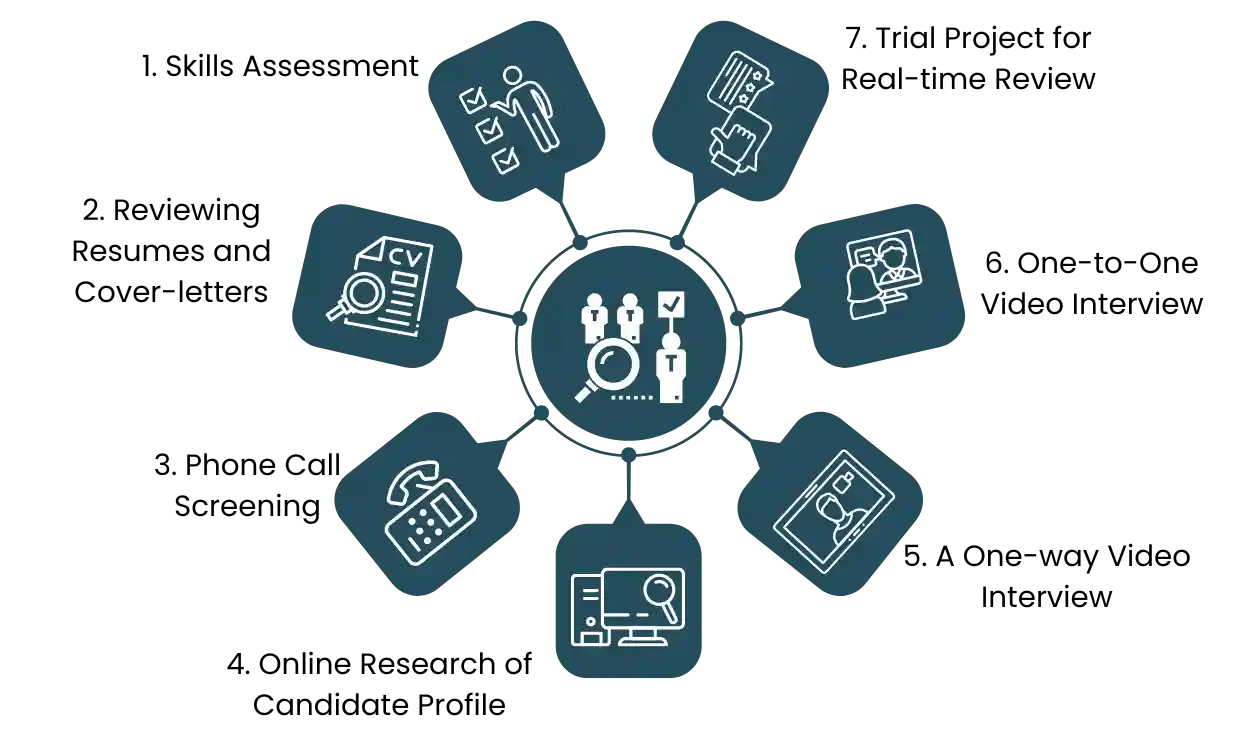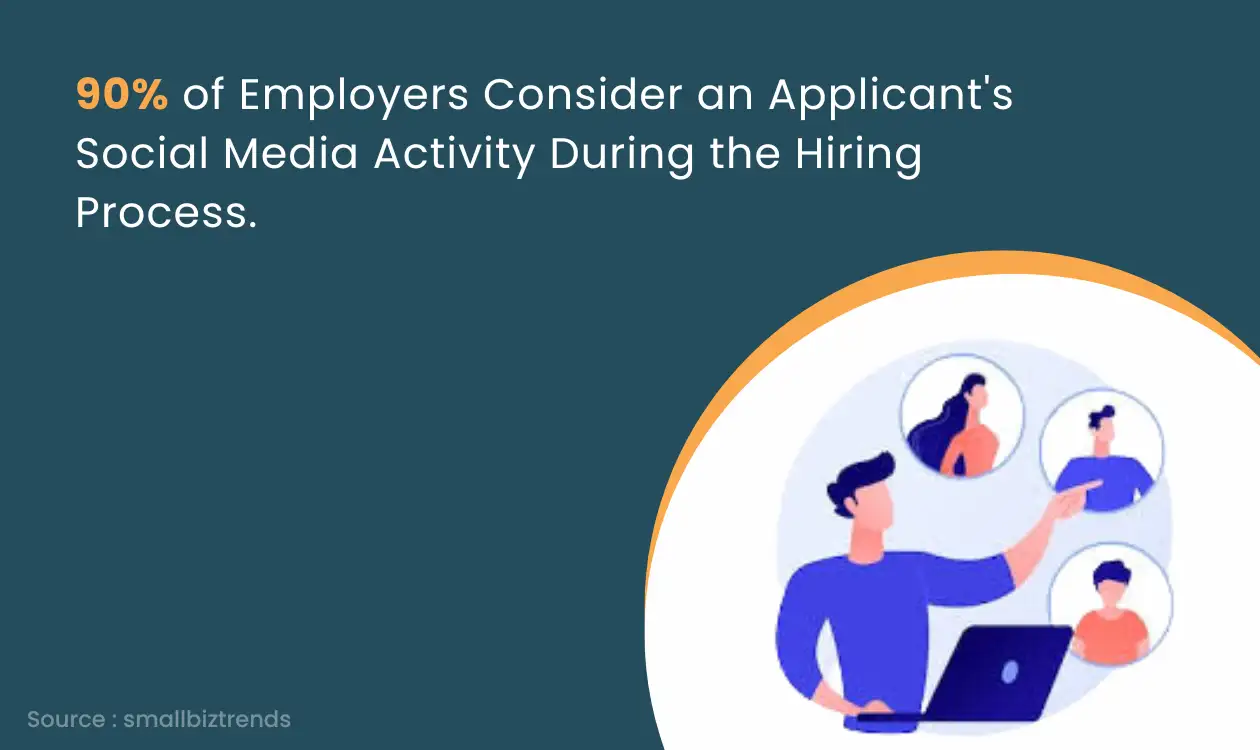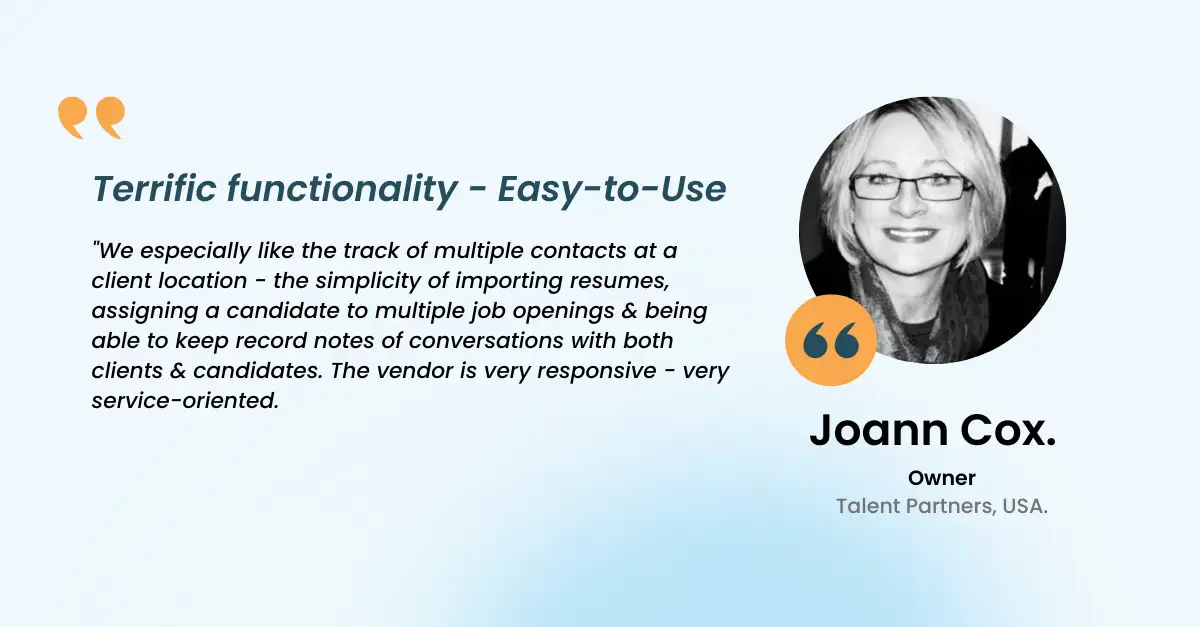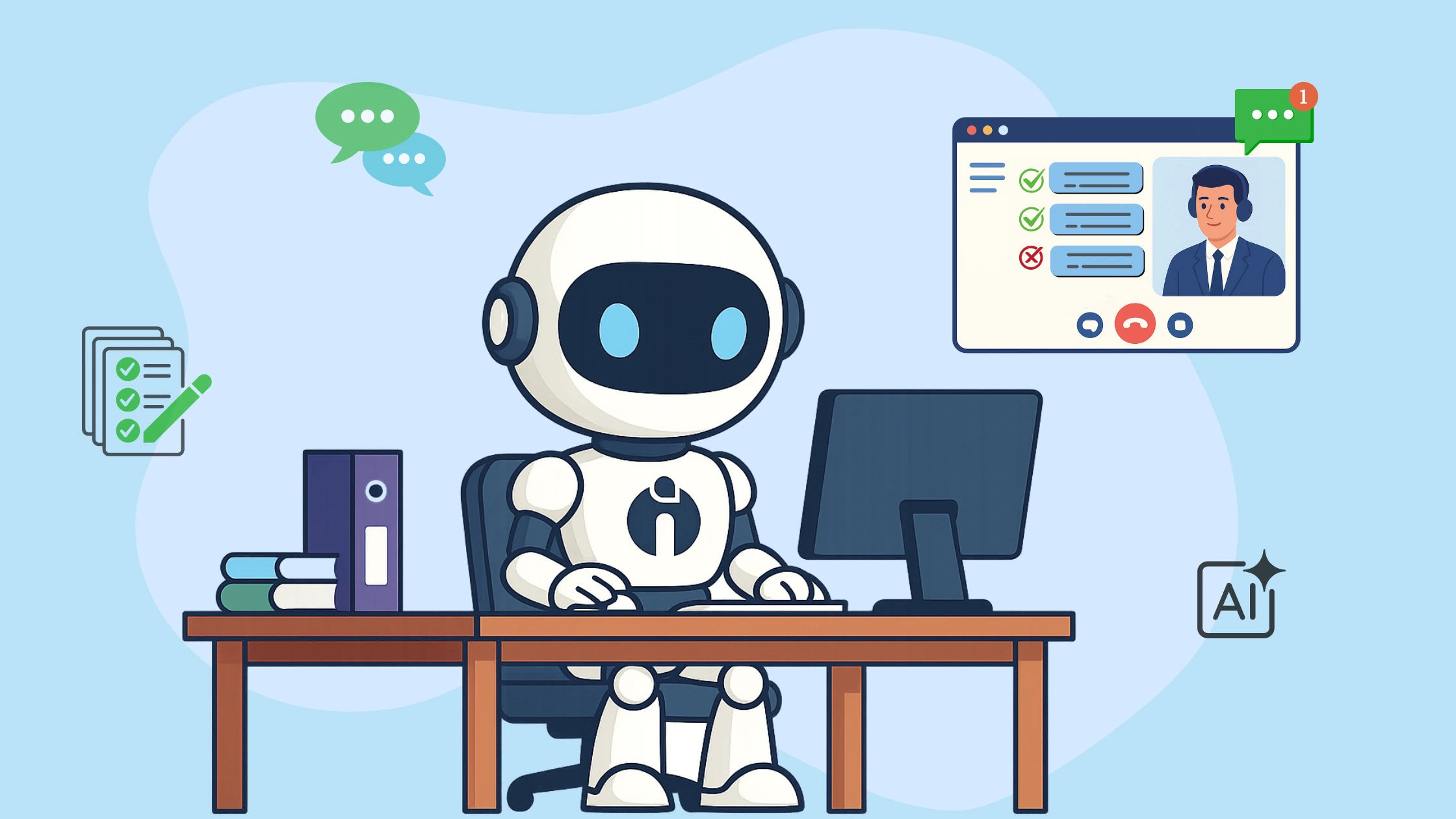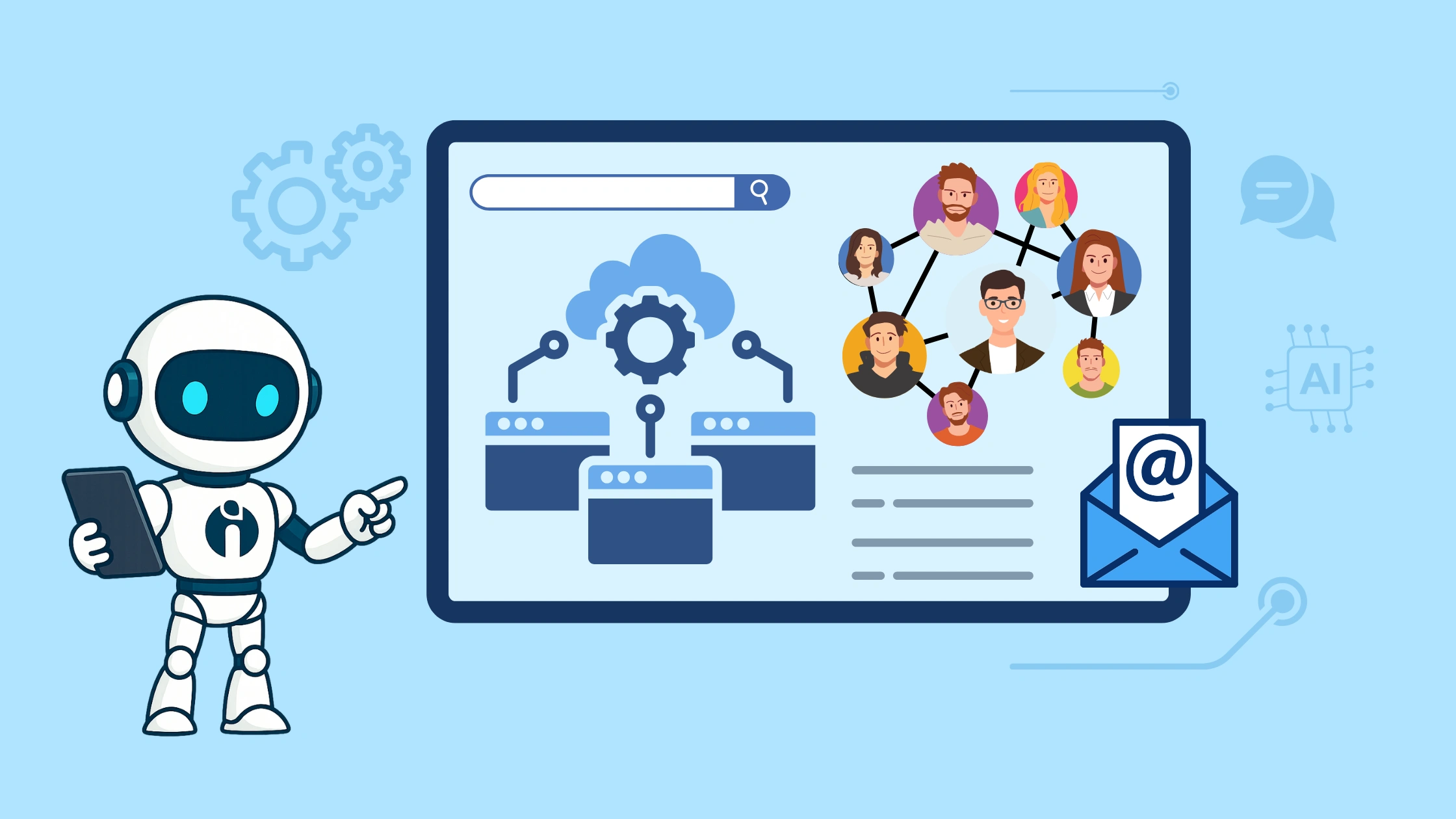TL;DR
- Candidate screening is a vital step in recruitment, filtering out unsuitable applicants early.
- There are seven main stages: skills assessment, resume review, phone screening, online profile research, one-way video interview, in-person interview, and real-time project assessment.
- Technology such as AI-powered tools and automated resume parsing streamlines the screening process, saving recruiters time.
- Maintaining a positive candidate experience and using data-driven insights improve hiring effectiveness.
The recruitment process has evolved exponentially in recent years due to the faster growth in technology. As a result, recruiters can now focus on critical tasks and not stress the repetitive manual tasks.
In addition, screening in recruitment is a vital part as it filters those who are not suitable for the open position.
Candidate screening is an invaluable part of the recruitment process and is advantageous for the firm's future growth. Recruiters can accomplish the screening process effectively by using simple steps and online tools mentioned in this article. Let's understand them in a possible simplistic manner.
What is Screening in Recruitment?
Let's say you have done your recruitment marketing effectively and drawn many candidates to your talent pool. But are the candidates valid? To check it, you have to do a candidate screening process to find a suitable match for your open roles.
Applicant screening is the process of checking job applications to select people who are skilled and have the qualifications to contribute to the role. These candidates will be carried forward into the later stages of the recruitment process. Many recruiters believe that screening is the most time-intensive facet of the recruitment process. However, it is crucial as it filters the candidates who might be suitable for the open role.
7 Stages of the Screening Process in Recruitment
The recruitment process contains multiple stages, and candidate screening is an essential facet of the process. It eliminates the candidates who are not a perfect fit for the role, which saves a lot of time for the recruiters in mass recruitment. Let's understand the steps of the candidate screening process.
1. Skills Assessment
Skill assessment is the initial stage of the screening process. It is essential as it eliminates the candidate who is not qualified for the following process round. This stage provides the top candidate to stand out more. Besides technical and logical skill tests, recruiters use non-tech assessment tests such as psychometric, behavioural, interpersonal, communication, situation-based, and language proficiency.
In addition, many online tools are available to conduct such tests for interested candidates. Mass recruiters and staffing agencies must use these mass hiring tools to do the screening part efficiently and save valuable time to do other essential tasks such as interacting and engaging with candidates.
Once the recruiters take these evaluation tests, there are two benefits they will get: Firstly, they will have a data report of the performance of the candidates, which is immensely useful, and secondly, they can remove the underperformer by sending them a mail to try next time.
This way, recruiters will get instant insight into the candidates' experience and problem-solving capabilities. Also, recruiters can diminish unconscious bias. There will be no room for cheating as these tests are purely critical thinking and logical and do not have the exact or prepared answers.
2. Resume and Cover Letter Review
The second stage is the resume screening of the candidates who qualified for the skill assessment test. Reviewing the resumes is the most widely used approach in the screening process.
Also, recruiters must verify the details of candidates' resumes by checking their online profiles and taking video interviews in the later stages. A survey conducted by criteria pre-employment testing found that up to 78% of resumes contain misleading statements, while 46% contain actual lies.
Hence, recruiters must review the details such as Short Profile/Bio, Work Experience, Key Skills, Education, Contact Information, Job-Specific, Correct Spelling, and Grammar. Back then, recruiters used to involve in manual reading, and practically recruiters couldn't go through thousands of resumes during mass hiring. However, with the rise of technology, they are using online tools such as resume parsers to identify suitable candidates.
Resume parsers use advanced search techniques to identify the perfect candidate for the job opening. These techniques include the use of artificial intelligence resume screening, which allows the parser to match up the relevant keywords from the job description with the qualifications and experience of the potential candidates.
Reviewing cover-letter is more vital for many recruiters than screening resumes. The main reason is that the cover letter provides specific reasons for the candidate to join the open role and the internal motivation to join the firm. Also, it contains the information resume doesn't have.
3. Phone Screening
Generally, Phone screening usually takes around 30 minutes. They're a way for recruiters to conduct brief phone interviews with candidates to gather additional information about their background, skills, and fit for the role. It helps narrow down the candidate pool before moving forward with in-person interviews.
4. Online Candidate Profile Research
An online search of candidates' profiles has become a priority for recruiters. After reviewing their resumes and cover-letter, it is always a good idea to check candidates' professional (LinkedIn) and personal (Social-media) accounts to know more about them. It helps recruiters to find some extra nuggets of information about the applicant. The following are parameters recruiters must consider while reviewing candidates' profiles.
-
Check the candidate's profile is complete and presented structurally.
-
Review for career gap and mention reasons for it. If the reasons are not valid or genuine, the recruiter gets a clue that something is wrong with the profile.
-
If a candidate changes jobs multiple times in 12 months, it may suggest a lack of focus or a conflict-ready character.
-
If the resume and online profile details don't match, then it says that the candidate is exaggerating their skills and experience.
-
Check for spelling mistakes or typos because it indicates candidates' lack of focus on details.
5. One-way Video Interview
The one-way video interview is a way for recruiters to get to know the candidates' knowledge and communication skills by pre-recorded video answers to the recruiters' questions. The benefit of a one-way video interview is that recruiters can evaluate the answer according to their convenience time.
This stage allows recruiters to check candidates' soft skills, screening them for communication, language proficiency, and confidence.
6. In-Person Interview
The one-on-one video interview helps recruiters understand candidates' character, communication skills, persuasive skills, and motivation to join the firm. They learn more about the candidate in the video interview.
Plenty of tools are available in the online market that helps recruiters to conduct video interview by sending them an interview invite link automatically to the candidate. Recruiters can also cancel or reschedule the meeting, and the system will send them mail auto-update.
For example, The Applicant Tracking System has a feature to update the candidate automatically. The hiring team and recruiters can use such a system to increase responsive and positive candidate experience. Moreover, in the video screening, the candidate must pay attention to the body language as it gives an idea of the candidate's soft skills and communication strength to present themselves.
Also, while conducting the video interview, recruiters must keep in mind to be super professional. The background should be neutral, all distractions should be off, and the camera's light needs to be perfect.
7. Real-Time Project Assessment
This last stage is very important as it gives real-time experience to a candidate of the work they will do, and it provides recruiters with fundamental insight into the candidate's abilities.
It's not feasible for recruiters or the hiring team to review thousands of resumes and conduct numerous video interviews to assess candidates accurately. However, this stage gives a golden opportunity for recruiters to evaluate the candidate's actual ability and strength.
Recruiters provide the actual projects or problems to solve; sometimes, they give a case study or complete paid assignments. These stages of screening are vital for recruiters in the recruitment process. They leverage maximum benefits if they do it efficiently.
Things to Keep in Mind in the Screening Process
The screening process should be a quick, smooth, and structured way. So, recruiters must use a data-driven approach. Candidate experience is vital in the recruitment process. Hence, recruiters must regularly interact with the candidate to ensure a positive candidate experience.
Recruiters also need to understand that the best way to assess candidates is to give them an actual project because they may lie in their resumes or exaggerate things in the offer letter.
Finally, an efficient process is incredibly important, so they must use online talent acquisition tools to automate repetitive tasks. The hiring process should be less time-consuming for the candidate as they might leave or not accept the offer if it takes too long.
Leveraging Technology in the Screening Process
Now, as you understand, this whole process will take time. But what if there are tools that can make your tasks a bit easier?
Yes, there are many recruitment tools available that can make your task easy. Instead of sifting through hundreds of resumes by hand, technology can help you do it faster and more accurately.
AI-Powered Screening Tools: It’s like having a smart assistant that can read through hundreds of resumes in minutes and pick out the best ones. That’s what AI-powered tools do! They help scan resumes and even evaluate a candidate’s answers during interviews, making sure only the most suitable candidates move forward.
Automated Resume Parsing: This technology acts like a super-efficient organiser, and it's part of ATS. It takes information from resumes—like job experience, skills, and education—and arranges it in a clear format. This saves recruiters a lot of time and helps them focus on the most relevant candidates.
Skill Assessment Software: Think of it as a mini-test centre online. Candidates can prove their skills through practical tests, which could be anything from coding challenges to digital marketing tasks. This ensures that the candidate's skills match what the job requires.
Data-Driven Insights: By using data analytics, recruiters can make smarter decisions. These tools analyse patterns and results from past hiring processes to predict how well a candidate might do in a job, helping to choose the best person for the role.
Using these tech tools in your screening process not only saves you a ton of time but also helps you find better matches for your job openings. Pretty neat, right?
Conclusion
So, screening isn't just a step in the recruitment process – it's the foundation for building an unstoppable team. By understanding the different types of screening, crafting effective questions, and using the right tools, you're well on your way to finding the perfect candidates.
It's about finding the best fit for your team. It's like putting together a puzzle – each piece is important, but they all need to fit together perfectly.
By streamlining your screening process, you'll save time, reduce costs, and improve your chances of hiring someone who'll rock your business.
But don't stop here! Keep learning, keep experimenting, and keep refining your process. The world of work is always changing, so stay ahead of the curve.
And most importantly, trust your gut.
Sometimes, the best candidates have a certain spark that goes beyond their resume. So, pay attention to those gut feelings and give people a chance to shine.
By following these tips, you'll not only find great candidates but also build a strong reputation as a top-notch recruiter. iSmartRecruit can also help you with this by streamlining your screening process.
So, what is stopping you? Book a free demo today and go forth and conquer the world of screening!
FAQs - Frequently Asked Questions
What is candidate screening in recruitment?
Candidate screening is the process of evaluating job applicants to find those who have the right skills and qualifications. It filters out unsuitable candidates early, saving time and ensuring only the best proceed further in the hiring process with tools like iSmartRecruit.
Why is a structured screening process important?
A structured screening process helps recruiters efficiently identify suitable candidates whilst ensuring fairness. It improves candidate experience and reduces hiring time. Using technology such as iSmartRecruit can streamline this process and boost hiring accuracy.
How do online tools assist in the screening process?
Online tools automate tasks like resume parsing, skills assessment, and video interviews, making screening faster and more objective. iSmartRecruit offers features that integrate these tools to help recruiters focus on engaging the best talent effectively.
What are the benefits of using one-way video interviews?
One-way video interviews let candidates record answers at their convenience, allowing recruiters to review responses anytime. This saves time and helps assess communication skills and confidence before moving to live interviews, a feature supported by iSmartRecruit.







.webp)
